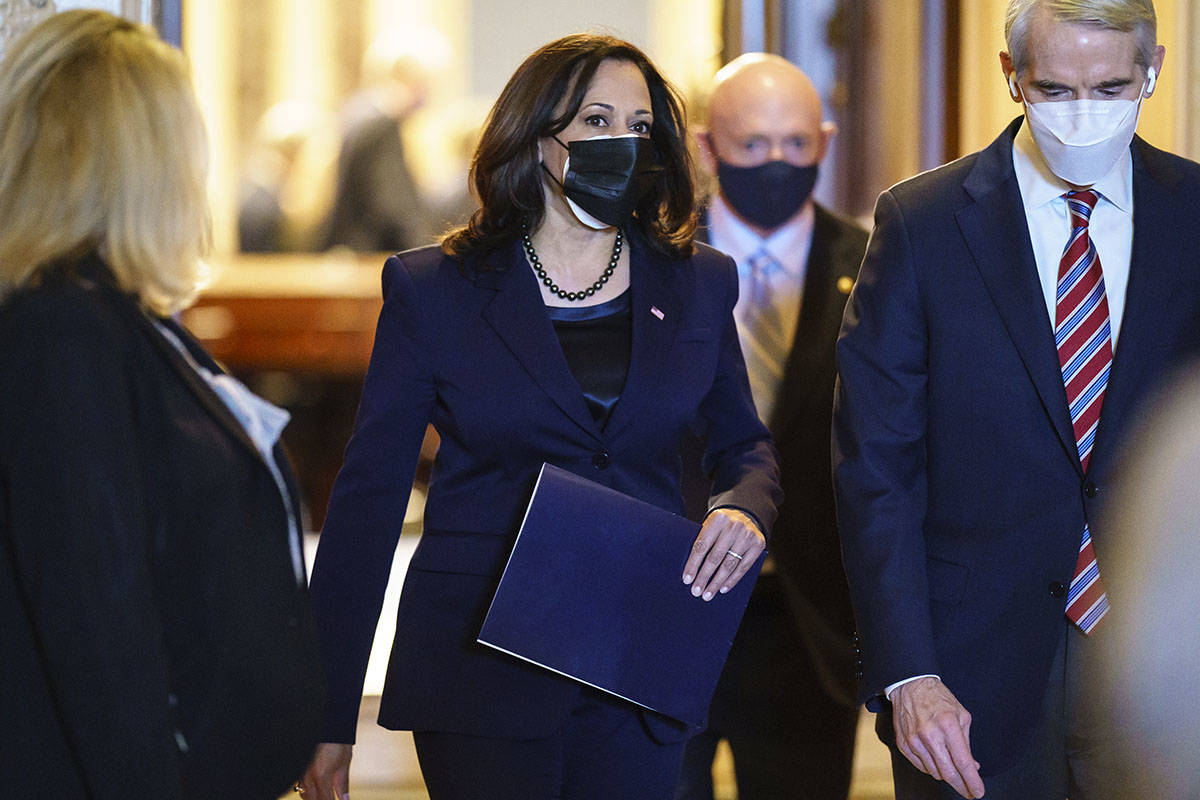Senate overwhelmingly passes defense bill

WASHINGTON — A sweeping $741 billion defense bill with military projects for Nevada was passed by the Senate on Friday and sent to President Donald Trump, who opposes the legislation over measures that include stripping the names of Confederate war heroes from military bases.
The Senate passed the bill with a veto-proof majority, 84-13. The House this week approved the legislation with a similarly overwhelming 335-78 vote.
Nevada’s congressional delegation, Sens. Catherine Cortez Masto, Jacky Rosen and Reps. Dina Titus, Mark Amodei, Susie Lee and Steven Horsford, voted in support of the legislation that provides military personnel a 3 percent pay raise.
“It excludes any authorized funding for Yucca Mountain, which is fantastic,” Cortez Masto told the Review-Journal.
The bill also includes several measures that Cortez Masto sought, such as language to provide more transparency to billing practices for military, veterans and their families in the TRICARE health care system.
Cortez Masto said she sought a study requiring the Pentagon to look at the billing practices after hearing complaints from military families in Nevada who use the military health care system.
Meanwhile, Republican and Democratic leaders in the Senate and House hope the overwhelming bipartisan approval will discourage the president from carrying out a veto threat of the bill that authorizes military spending at home and abroad for fiscal year 2021, which began Oct. 1.
Trump threatened to veto the bill over language to strip Confederate names from military installations, and over lawmakers’ reluctance to include language to crackdown on social media companies by removing legal liability protections.
Veto override possible
Sen. James Inhofe, R-Okla., chairman of the Senate Armed Services Committee, predicted the Senate would vote to override a presidential veto if Trump carries through with his threat.
Inhofe spoke with the president this week but came away disappointed when Trump would not drop his opposition.
The National Defense Authorization Act includes a number of measures sought by the Nevada congressional delegation.
Nevada is home to three major military installations: Nellis Air Force Base, Creech Air Force Base and Naval Air Station Fallon. There are roughly 10,300 military personnel, and 7,000 active in the reserves in the state, according to the Department of Defense.
Civilian employment at military installations and agencies in the state accounts for another 3,000 jobs, according to the National Conference of State Legislatures.
Efforts by the Air Force and Navy to expand bombing and training areas in Southern Nevada and the central part of the state were not included in the final bill.
Cortez Masto tucked legislative language in the bill that calls for the creation of an interagency committee to resolve conflicts between the Air Force and U.S. Fish and Wildlife over training and exercises on jointly managed lands between the Nevada Test and Training Range and the Desert National Wildlife Refuge.
Likewise, the senator added language that would create intergovernmental committees to resolve conflicts resulting from training at the National Test and Training Range and Fallon. The committees would provide a forum for tribal and local governments to interact with military branches over disputes.
Lee and Horsford also touted the bill for its exclusion of expanded military training on public lands.
Nevada priorities
One bipartisan measure in the legislation added by Rosen and others would authorize missile defense programs with Israel. She was also instrumental in adding five cybersecurity measures “that support the security of Nevada and our nation.”
In addition, Rosen said the bill would block a Trump administration request for a resumption of nuclear armament testing.
Titus was instrumental in the House in blocking resumption of nuclear weapons testing. She also helped remove language in the bill that would have eliminated 161 technician positions with the Nevada National Guard.
Horsford said the bill would ensure paid parental leave for all federal employees and secure supplies and materials critical to the COVID-19 response.
The legislation also authorizes spending $29 million for projects at Fallon, $16 million for projects at the Nevada National Security Site and an increase in procurement for the MQ-9 drone based at Creech Air Force Base.
Cortez Masto also inserted language in the bill that would expand mental health care services to members of the military reserves and National Guard, and include more treatment of ailments due to exposure to Agent Orange.
A measure that would require the budget of the National Nuclear Security Administration to remain under the Department of Energy, and not the Nuclear Weapons Council under the Defense Department, was also included in the bill, Cortez Masto said.
The NNSA oversees the Nevada Nuclear Security Site and its laboratories in Mercury, north of Las Vegas.
Contact Gary Martin at gmartin@reviewjournal.com or 202-662-7390. Follow @garymartindc on Twitter.